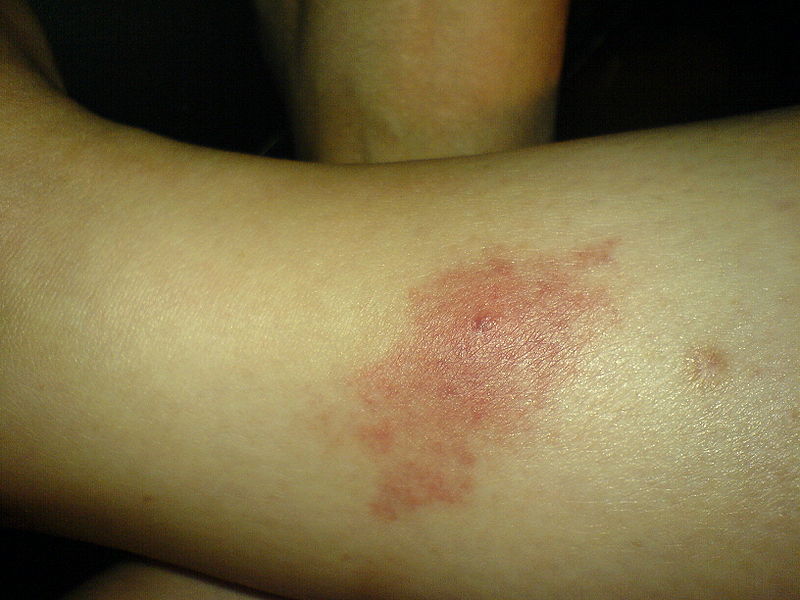READY TO GET STARTED?
REQUEST A FREE ESTIMATE
Fill out the form below or call (888) 466-7849 for a free, no-obligation estimate.
It’s important to protect yourself and your pets from ticks this season! Keep reading for more information on the little suckers!
BRIEF DESCRIPTION
HABITS
SPECIES
THREATS
PREVENTION
OTHER PESTS TO LOOK OUT FOR
Call Northwest Exterminating for information on how to protect your home and loved ones from ticks.
If you’ve spent any time in Savannah, Ga in the spring or fall, you know all about sand gnats, or as locals call them….the state bird. The sand gnat is not just the mascot for the Savannah Sand Gnats minor-league baseball team, but just like the baseball team, they’ll sting you, draw your blood and defeat you on the field.

Sand Gnat bite – Source
In the low country, the sand gnat is more of an issue than mosquitoes or fleas. Sand gnats live along waterways, such as the ocean, lakes, rivers, ponds, and marshes. They fly, bite, and suck your blood just like a mosquito, leaving behind
red, itchy bumps on the skin. Although blood has no nutritional value to the sand gnats, they need it so their eggs can mature prior to laying. Carbon dioxide draws sand gnats from up to 30 yards, they stay in a 300 foot zone where they breed around your home, fly less than 25 feet high and most adult females live for 2-3 weeks.
It is not unusual for the effects of a sand gnat bite to be more intense for a longer period of time than a mosquito bite. Unless you want to cover yourself from head to toe in the sweltering Savannah heat, be proactive. Commercial repellents with Deet can be useful to prevent biting, or you can try a local remedy such as taking garlic pills – that is, if you don’t mind smelling like garlic. However, a more “user friendly” remedy such as rubbing your arms with baby oil will prevent the sand gnats from biting as it provides a protective layer to your skin that the gnats can not penetrate.
For sand gnat treatment at your home or business, Call the Mouse! 888.466.7849 or visit online at www.callnorthwest.com
Barry Teubert
[email protected]
How can something as small as a flea be such a huge pain? Pet owners are all too familiar with the annoyance of fleas because they make us AND our pets miserable. Fleas attach themselves to warm-blooded animals (pets and humans) and feed on their blood. A flea bite can cause discomfort, painful, itchy red bumps and can lead to an allergic reaction. In some cases, they can even transmit diseases like the bubonic plague, murine typhus and transfer tapeworms in pets.
To prevent fleas from becoming a pest in your home, clean and vacuum frequently. A clean home is a healthy home and will aid in the prevention of other pests as well. Cleaning will help to remove any fleas and their eggs. Maintaining a clean yard is just as important, especially if you have pets that go outside often. A well kept lawn with no debris or pet droppings will reduce the flea population around your home. Bathe pets regularly and apply a flea and tick treatment. Most importantly, call a professional exterminator if you have fleas in your home. A flea infestation can be very difficult to get rid of and is best left to the professionals so the problem does not continue to grow.
Interesting Flea Facts:
Got a flea problem? Call Northwest Exterminating for professional, effective flea control.
How can something as small as a flea be such a huge pain? Pet owners are all too familiar with the annoyance of fleas because they make us AND our pets miserable. Fleas attach themselves to warm-blooded animals (pets and humans) and feed on their blood. A flea bite can cause discomfort, painful, itchy red bumps and can lead to an allergic reaction. In some cases, they can even transmit diseases like the bubonic plague, murine typhus and transfer tapeworms in pets.
To prevent fleas from becoming a pest in your home, clean and vacuum frequently. A clean home is a healthy home and will aid in the prevention of other pests as well. Cleaning will help to remove any fleas and their eggs. Maintaining a clean yard is just as important, especially if you have pets that go outside often. A well kept lawn with no debris or pet droppings will reduce the flea population around your home. Bathe pets regularly and apply a flea and tick treatment. Most importantly, call a professional exterminator if you have fleas in your home. A flea infestation can be very difficult to get rid of and is best left to the professionals so the problem does not continue to grow.
Interesting Flea Facts:
Got a flea problem? Call Northwest Exterminating for professional, effective flea control.